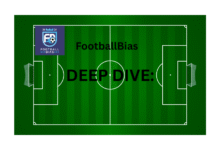
Eating healthy is often associated with improved cognitive functions. Personalized nutrition can identify specific nutrients that support brain health and cognitive function based on genetic and health profiles. For example, individuals may receive recommendations to increase their intake of omega-3 fatty acids, antioxidants, or B vitamins, which are crucial for brain health. It also helps in the identifying and correction of nutrient deficiencies, such as low levels of vitamin D, iron, or magnesium that can impact cognitive performance. Personalized nutrition can as well provide dietary strategies that enhance neuroplasticity, which is the brain’s ability to adapt and reorganize itself. For instance, diets rich in polyphenols and omega-3 fatty acids can support neuroplasticity and cognitive flexibility.
Nutrigenomics and personalized nutrition are not without their own concerns and reservations however, as there is often skepticism surrounding the safety of the genetic data of clients, Genetic and health data are sensitive and there are concerns about how this information is stored, shared, and protected from unauthorized access or misuse, there is also the risk that personal health data could be used for discrimination in areas such as insurance or employment. Personalized nutrition can be a costly endeavor as well, personalized nutrition services, including genetic testing and consultations with specialized dietitians or nutritionists, can be costly and may not be covered by insurance. Not everyone has equal access to personalized nutrition services due to geographical, economic, or educational barriers.
Another concern centers around the scientific validity, the accuracy and clinical relevance of genetic tests can vary as not all genetic markers have well-established links to health outcomes, and interpretations can sometimes be speculative. Also, interpreting genetic and nutritional data requires expertise and misinterpretation of data can lead to inappropriate recommendations that might not benefit the individual.
The future of personalized nutrition lies in its ability to work hand in hand with the modern technologies. If it is to reach the projected heights, it will be as a result of the effective combination of human enterprise with technological advancements. There’s a wide range of emerging technologies in the personalized nutrition sector. They include Long-Read Sequencing Technologies like PacBio and Oxford Nanopore that provide longer reads of DNA sequences compared to traditional short-read technologies, improving the ability to resolve complex genomic regions. Long-read sequencing is useful for studying structural variants, repetitive regions, and complex genomic rearrangements that are challenging to detect with short-read methods.
CRISPR-Cas9 is another powerful tool for precise genome editing, allowing scientists to make specific changes to DNA sequences. This technology is used for functional genomics, therapeutic interventions, and research into genetic disorders. It holds potential for correcting genetic mutations responsible for diseases and developing new treatments.
Advanced bioinformatics tools and platforms integrate and analyze large-scale genetic data, combining information from different omics layers (e.g., genomics, proteomics, metabolomics). These tools help in understanding complex interactions between genes, proteins, and metabolites, and in identifying biomarkers for diseases. They also facilitate the development of personalized treatment strategies.
Wearable devices equipped with genetic sensors can provide real-time monitoring of genetic markers related to health and disease. These devices offer insights into individual responses to environmental factors, lifestyle choices, and potential health risks, enhancing personalized health monitoring and management. Emerging technologies also focus on securing genetic data and ensuring privacy through advanced encryption methods and secure data-sharing platforms, these technologies protect sensitive genetic information from unauthorized access and misuse, addressing privacy concerns and facilitating ethical use of genetic data.
Artificial Intelligence (AI) and Machine Learning (ML) algorithms are increasingly used to analyze complex genetic data, identify patterns, and make predictions. These technologies enhance the interpretation of genetic data, including identifying disease-associated variants, predicting disease risk, and personalizing treatment plans. They are also used in drug discovery and genomics research. AI-powered apps can automatically track nutrient intake by analyzing food images, barcode scans, or user input. This provides accurate assessments of dietary consumption and helps ensure that individuals meet their personalized nutritional goals.
AI can also offer real-time feedback on dietary choices, alerting users if they are deviating from their recommended nutrition plan and suggesting immediate adjustments. It can also generate personalized meal plans based on an individual’s genetic predispositions, nutrient needs, and preferences. For instance, an AI system might suggest specific foods and recipes that align with a person’s unique metabolic profile and health goals as well as continually adjust dietary recommendations based on real-time data and feedback, such as changes in health metrics or lifestyle habits. This adaptability ensures that nutritional advice remains relevant and effective over time.
Personalized nutrition holds great promise for improving health outcomes through tailored dietary recommendations. However, making it accessible and affordable for the general population involves addressing several key challenges and leveraging emerging technologies. As sequencing technologies advance, the cost of genetic testing continues to decrease and emerging technologies like direct-to-consumer genetic tests are making genetic information more accessible and affordable for the general public. AI-driven apps and platforms can also automate the process of dietary assessment and recommendation, reducing the need for expensive consultations with dietitians.
Automated tools can provide personalized meal plans and dietary advice based on user inputs. Collaborations between tech companies, healthcare providers, and nutrition experts can drive the development of affordable personalized nutrition solutions. Partnerships can leverage technology to scale solutions and reduce costs. Non-profits focused on health and nutrition can also help fund and provide personalized nutrition services to underserved populations, promoting wider accessibility.
Overall, personalized nutrition and nutrigenomics will prove more and more useful because of the continuous desire of man to live healthier and longer. Personalized nutrition can be beneficial in so many ways from health optimization to improved cognitive functions and even to reduced risks of disease and better physical performances by athletes, but there are challenges as well such as cost, accessibility, security of personal info and data as well as the validity of data being provided and used.
The transformative potential of this field for individual health and wellness cannot be overemphasized as there’s a capacity for us humans to see an increase in our lifespans as well as increases in physical conditions and performances in every aspect of our lives be it School, Work or even our Hobbies and Recreational Activities.







